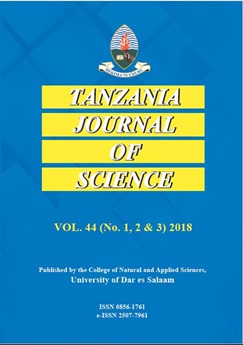Thermal Performance of a Mechanical Thermostat for Charging an Energy Storage System
Abstract
Thermal energy storage (TES) systems enhance the use of solar energy for cooking by matching the energy demand to its supply. Useful energy is extracted from TES systems that are thermally stratified and this is enhanced when charged at an averagely constant-temperature. This paper presents an experimental analysis of a mechanical-thermostat used to control the charging of an oil based TES system. The thermostat consisted of a slider-valve, an expansion-system acting both as a thermal-sensor and actuator, and an adjusting-knob for setting the charging temperature. Oil from a cold-oil reservoir flows by gravity into a heating-chamber when a manual valve is opened. In the heating-chamber, the oil is heated causing the oil to expand triggering the opening of the slider-valve at a preset temperature. This allows the hot-oil to flow into the TES system at the set temperature. The thermostat was demonstrated for charging a TES system at preset temperatures of 116 °C, 150 °C, 200 °C and 230 °C. The volume of hot-oil delivered into a TES tank decreased with increasing charging temperature. The observed temperature variations were minimized by reducing the oil flow-rate using a valve hence achieving a fairly stable charging temperature.
Keywords: Mechanical thermostat; Charging temperature; Thermal energy storage system, Solar energy, Cooking.


